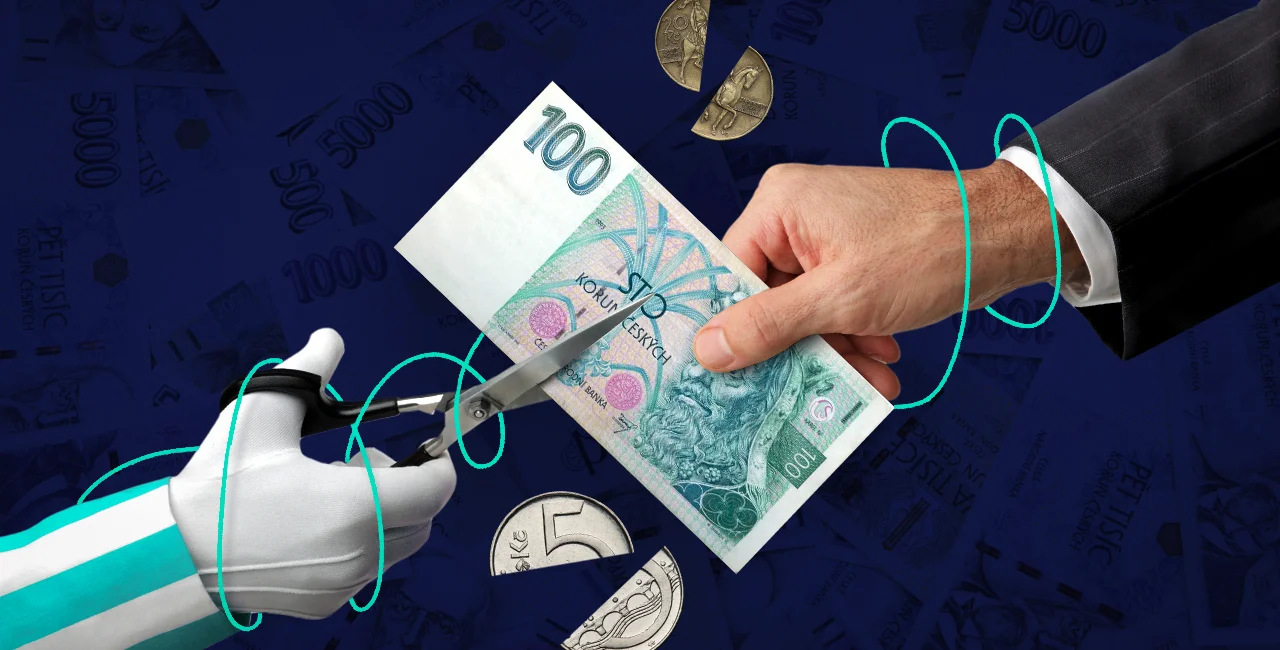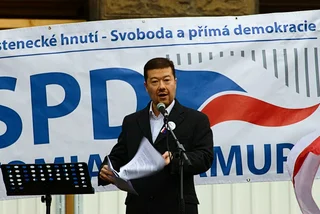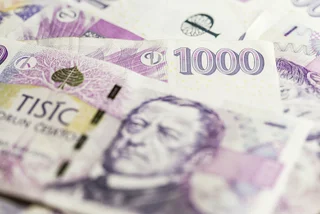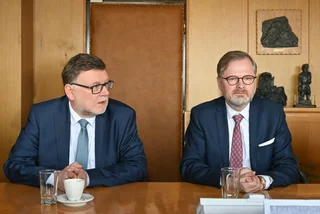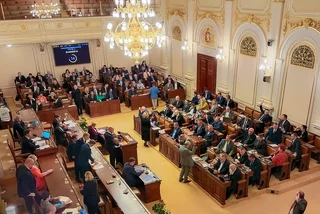Members of parliament (MPs) in the Chamber of Deputies are going through tense discussions this week over the passage of the government’s long-planned austerity package, which has angered the opposition and sections of society. The current cabinet hopes that it will pass on Friday, but mass variance of opinion within the lower house may prevent this.
What is the government’s austerity package?
In May this year, the government of Prime Minister Petr Fiala announced its large-scale fiscal reform package that sets out to narrow Czechia’s huge public deficit. Many of the measures announced – over 50 in total – will affect the lives of expats and locals alike in Czechia.
The package includes a change in the value-added tax (VAT) system – from three rates to two – and changes in VAT for various products. For example, VAT on draft beer will increase from 10 to 21 percent. Soft drinks are also set to get the highest VAT rate.
On the other hand, VAT for food and housing will decline from 15 to 12 percent. Public transport, magazines, some medicinal drugs, and tickets for culture and sports events will become slightly more expensive. Their VAT rate will rise from 10 percent to the new 12 percent bracket.
Other taxes will also change: the reform will abolish several tax exemptions, and the threshold to pay the higher level of income tax – 23 percent – will be reduced from CZK 161,000 to CZK 121,000.
The retirement age will also be recalculated under the planned changes, which means that those currently in their 30s and 40s will likely have a later retirement age than at present. Labor Minister Marian Jurečka has already confirmed that pension growth will substantially and definitively slow in the coming years.
Self-employed people will need to pay higher insurance premiums from the start of next year.
Why does the government say the package is necessary?
Upon presenting the reform, Fiala acknowledged that these reforms would not be popular, but branded them "essential" and overdue in order to cut Czechia's public deficit by tens of billions of crowns.
The government says it has to raise at least CZK 70 billion to help stem its widening deficit. The cabinet expects the measures proposed in the consolidation package to improve the state budget balance by CZK 97.7 billion next year. By 2025, the state should save CZK 150 billion.
Last month, the government approved the state budget for next year with a deficit of CZK 252 billion. A larger deficit of CZK 295 billion is forecast for 2023.
What is the main problem?
The bill is currently held up in parliament because politicians cannot agree on certain aspects of it. Opposition parties ANO, led by Andrej Babiš, and the Freedom and Direct Democracy party, led by Tomio Okamura, are vehemently against the package.
Okamura previously referred to the bill as a tool for “stealing from pensioners.” Babiš said that the reform “brutally increases taxes.” He criticized the planned abolition of the electronic registration of sales (also known as EET) and said that by doing so, the cabinet has boosted the grey economy.
"The package of the bill is nothing else but a massive across-the-board increase in all existing taxes and levies and it will negatively impact all groups of citizens, such as employees, the self-employed, seniors, families with children, as well as Czech companies and employers," Czech Chamber of Deputies member Radim Fiala said.
A 19-hour debate on the package, which included a six-hour speech by Babiš, did not change any gridlock.
"The proposal of the Fiala government is an unbelievable travesty," Okamura remarked a fortnight ago, saying that "the monstrous tangle of taxes and levies will take an extra CZK 100 billion out of people's pockets for no reason.”
The opposition wants income tax to stay unchanged, VAT to be broadly reduced rather than increased, and self-employed people to continue paying the same amount of money as at present.
What does the public think?
The reform has been divisive across the population – unsurprisingly so, given the fact that most people will need to pay more (or receive less) should the government pass the package.
A May survey by the Median polling agency found that half the population saw the reform as being “necessary.” However – and perhaps concerningly – four in 10 Czechs said that they simply “did not understand” the consolidation package. A newer survey by the Generali Investments financial firm found that four-fifths of Czechs “fear the impact” of the consolidation package.
CZECHS' REACTION TO REFORM
- Three-quarters of people are most afraid of the VAT increase on some products.
- Around half of all residents in Czechia are worried about an increase in property tax.
- Only 30 percent agree with the plan to base retirement age on life expectancy.
- Eight in 10 Czechs expressed support for higher taxes on alcohol and tobacco.
- More than two-thirds (69 percent) agree with the proposed higher taxation of incomes that are above average.
Sources: Median agency, Kantar CZ
Organizers of an anti-government protest in September, which had a turnout of around 100,000 people, strongly criticized the consolidation package, saying it was grossly unfair to the majority of the population.
Has anything changed within the package?
Objections and negotiations from other MPs have led to partial adjustments to the package. The VAT rate for magazines and newspapers will be unified at 12 percent – originally, the government planned for the amount to be 21 percent.
Another change is that 100 percent of property tax revenue would remain with municipalities. Under the original proposal, part of it would be moved to the central government.
The state would also receive 55 percent of the gambling tax revenue instead, of the originally intended 35 percent. The newly introduced excise tax on electronic cigarettes and nicotine sachets will not be as high as the government originally proposed.
As regards the excise tax on alcohol, its gradual increasing will be accelerated as against the original proposal. The coalition originally proposed a 10-percent increase for next year and 5 percent for the following three years. It will now propose to increase the tax by 10 percent in each of the next two years and 5 percent in the year after.
What now?
Parliamentarians are convening this afternoon to discuss for the umpteenth time details about the package. Currently in its third reading after passing the first couple, the bill has been discussed for around 10 hours over a two-day session this week.
Finance Minister Zbyněk Stanjura says he wants to have the package approved in the lower house by mid-October. However, even then it will still need to be approved by both the Senate and the Czech president. Incidentally, President Petr Pavel said earlier this week that he thought the consolidation package should be even “tougher” to make up for Czechia’s bad deficit.
This afternoon, the Chamber of Deputies confirmed that it will start taking a vote on the final form of the government budget consolidation package at 11 a.m. Friday. The house confirmed the date of the final vote thanks to the government's overall majority.
The consolidation package has caused discord not only in parliament but also across society. Seeing the bill passed could bring about a sense of relief to the government and an eventual end to the back-and-forth diatribe that has pervaded the lower house for months.












 Reading time: 5 minutes
Reading time: 5 minutes 